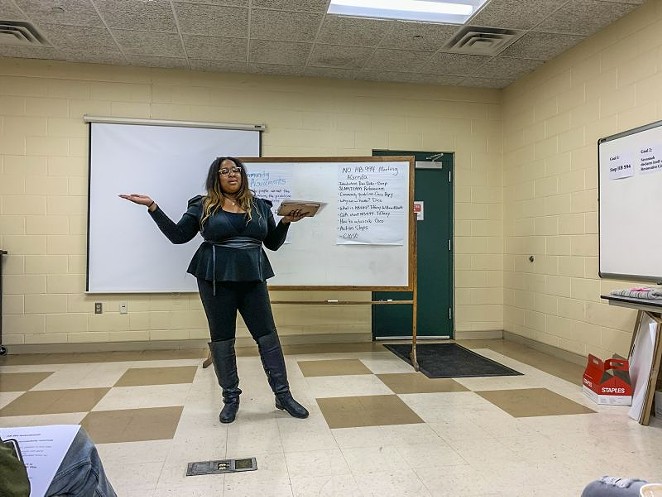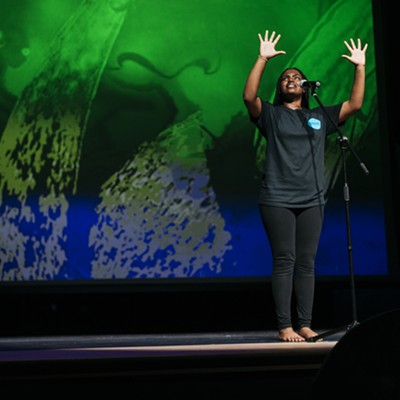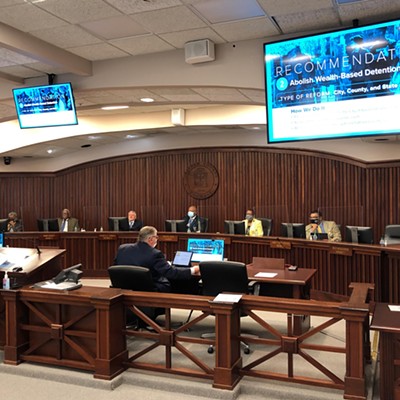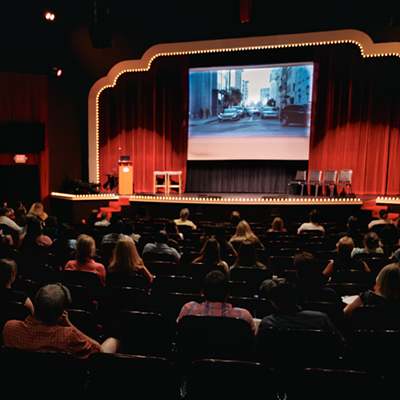There’s currently a dangerous bill being fast-tracked through the Georgia assembly, and activists say now is the time to take action to stop it.
House Bill 994 is anti-gang legislation in line with Gov. Brian Kemp’s prioritization on ending gang violence, but it’s poised to cause irreparable damage to our youth.
On Mar. 5, Deep Center hosted a community meeting that packed out Fire Station #5. The standing room only crowd included Alderwomen Kesha Gibson-Carter and Alicia Blakely and County Commissioner Jay Jones, as well as former Mayor Otis Johnson.
The meeting was intended to provide more information on HB 994 and help citizens opposed to it learn how to advocate against it.
Deep focuses on policy work and structural barriers that affect Chatham County’s young people.
“We started paying attention to the laws that legislature was putting out around the South and in Georgia, and when we saw this law, HB 994, we became deeply concerned,” said Dukes. “This is one of the ugliest pieces of legislation that I have seen in a long time, and it will do irreparable damage to the communities in Chatham County, especially our black boys and girls.”
Deep’s program manager, DiCo, works closely with systems-involved youth and spoke on how this bill would affect them.
“The reactions [to the bill] my young men gave me were, ‘Well, if they want us to be in gangs, I guess I’m in a gang, then,’” said DiCo. “And it really hurt to hear that, because what it showed was this sense of hopelessness that we come across. We’re looking at a bill that is treating crime, but it doesn’t get to the heart of the problem.”
Deep invited Tiffany Williams Roberts, the community engagement and movement building counsel at the Southern Center for Human Rights, to speak.
“We know there are a lot of laws being proposed right now that basically seek to roll back a lot of the Deal criminal legal reforms,” said Williams Roberts. “This bill, HB 994, is one of those efforts. When asked whether he wants to roll back criminal legal reforms done by Governor Deal and the counsel, what Governor Kemp says is, ‘No, but I’m focusing on gangs, so it’s different because I’m not seeking to roll back those reforms; I just want to focus on the people who can really hurt us.’ But what we know is that by finding a way to cast a really wide net across black and brown communities in Georgia, the intent is to essentially undo a lot of the progress that was made over the last eight years.”
Williams Roberts noted that Georgia is already an unfriendly environment for anyone accused of gang activity, but this law would exacerbate those conditions.
Fortunately, the more heinous parts of HB 994 were removed: automatic prosecution for children 13 and older for 33 new offenses, allowing prosecutors to charge people with gang offenses nor occurring in their county, and making criminal gang activity an aggravated factor for the death penalty were stricken from the bill.
But what remains of HB 994 is still damaging: it will create two new gang offenses; add five new offenses to the list of crimes that require registration on the state’s sex offender registry; prohibit gang offenses from being merged, which will likely result in more incarceration time; establish harsh civil penalties for people who are alleged to commit criminal gang activity; and unnecessarily expand the definition of “criminal gang activity” to include offenses like felony obstruction.
One of the main concerns with this bill is the fact that legislation like this has been proven to be largely ineffective.
“What we have seen in Chicago and Los Angeles is that using incarceration to address what we call criminal street gang activity has been ineffective,” said Williams Roberts. “Gang databases do not make us safer. Incarcerating children has been proven to make the children less safe and communities less safe.”
As Deep’s director of development and communications Coco Papy explained, HB 994 is being fast-tracked and is up for a vote on Crossover Day, which is this Thurs., Mar. 12. There is still time for people opposing this bill to make their voices known to their representatives. If you’re not sure who your representative is, visit openstates.org/find_your_legislator/ and enter your address.
Papy urged concise and polite language when making an ask of a representative.
“You want to make sure you are really firm, identifying yourself in the district that you live in, you’re identifying the bill number specifically, and why you’re opposing or advocating for it,” said Papy. “Do not give them any leeway to not say yes or no.”
Papy also recommended being strategically bipartisan when calling representatives.
“I think sometimes when we’re approaching certain issues, we think, ‘Oh, if we go to this representative, they’ll definitely be on our side,’” said Papy. “That could not be farther from the truth. Just because someone aligns with one political party or another does not mean you should immediately discount them. You’d be surprised at who are leading some of the criminal justice reforms at the state level and who are the people opposing them.”
More meetings such as this may follow. For more information on how to contact your representatives, contact [email protected].






























